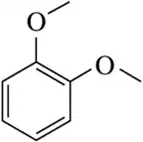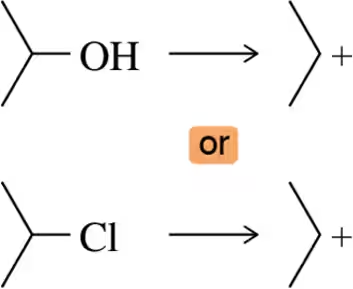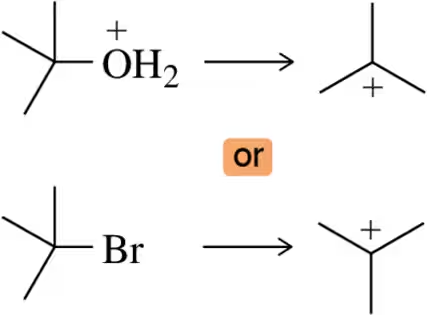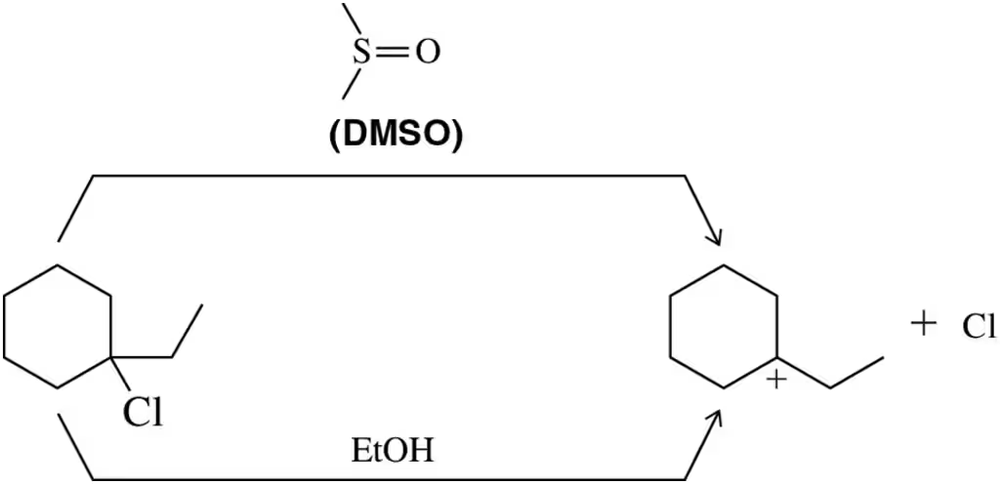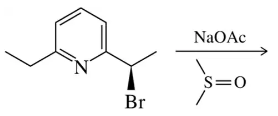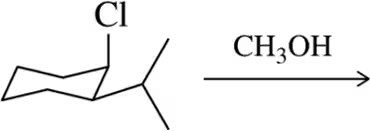 Back
BackProblem 20d
Would the following nucleophiles be more likely to participate in an SN1 or SN2 reaction?
(d) NH3
Problem 20e
Would the following nucleophiles be more likely to participate in an SN1 or SN2 reaction?
(e) H2O
Problem 20f
Would the following nucleophiles be more likely to participate in an SN1 or SN2 reaction?
(f)
Problem 21a
Identify the following solvents as polar protic, polar aprotic, or nonpolar.
(a)
Problem 21c
Identify the following solvents as polar protic, polar aprotic, or nonpolar.
(c)
Problem 21e
Identify the following solvents as polar protic, polar aprotic, or nonpolar.
(e)
Problem 22a
Which nucleophile would be more reactive in the solvent given?
(a)
Problem 22b
Which nucleophile would be more reactive in the solvent given?
(b)
Problem 22c
Which nucleophile would be more reactive in the solvent given
(c)
Problem 23
Will the following SN2 reaction proceed more rapidly in DMSO or H2O?
Problem 24a
Formation of the carbocation should be fastest for which leaving group?
(a)
Problem 24b
Formation of the carbocation should be fastest for which leaving group?
(b)
Problem 24c
Formation of the carbocation should be fastest for which leaving group?
(c)
Problem 25a
Which of the following is the better leaving group in a polar aprotic solvent?
(a) HO⁻ vs. F⁻
Problem 25b
Which of the following is the better leaving group in a polar aprotic solvent?
(b)
Problem 25c
Which of the following is the better leaving group in a polar aprotic solvent?
(c) Br ⁻ vs. I ⁻
Problem 26
Which reaction would be faster, the one with DMSO as the solvent or the one with ethanol (EtOH)?
Problem 27
The following reaction, though run under standard solvolysis conditions, occurs via an SN2 reaction. Why?
Problem 28a
For each solvent, indicate the most likely substitution reaction to take place.
(a)
Problem 28b
For each solvent, indicate the most likely substitution reaction to take place.
(b)
Problem 28d
For each solvent, indicate the most likely substitution reaction to take place.
(d)
Problem 28e
For each solvent, indicate the most likely substitution reaction to take place.
(e)
Problem 28f
For each solvent, indicate the most likely substitution reaction to take place.
(f)
Problem 28g
For each solvent, indicate the most likely substitution reaction to take place.
(g)
Problem 29a
Would you expect the following conditions to favor SN1 or SN2?
(a)
Problem 29b
Would you expect the following conditions to favor SN1 or SN2?
(b)
Problem 29d
Would you expect the following conditions to favor SN1 or SN2?
(d)
Problem 30a
Suggest a mechanism for the following substitution reactions.
(a)
Problem 30b
Suggest a mechanism for the following substitution reactions.
(b)
Problem 30c
Suggest a mechanism for the following substitution reactions.
(c)



